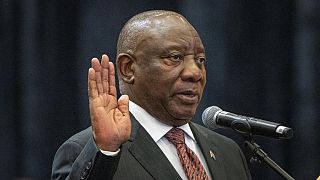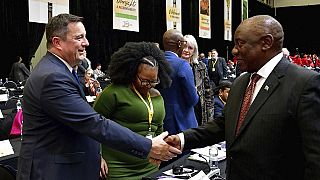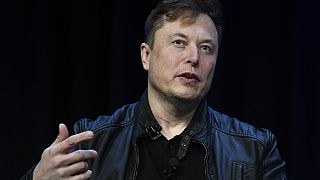South Africa
South Africa’s African National Congress party said Thursday that it has a broad agreement with the main opposition and other parties to form a coalition government and end a political deadlock after the ANC lost its 30-year majority in an election two weeks ago.
The announcement came on the eve of the first sitting of South Africa’s new Parliament, when lawmakers will elect a president.
The ANC needs help from other parties to re-elect President Cyril Ramaphosa for a second and final term.
The ANC lost its long-held parliamentary majority in the May 29 vote.
ANC Secretary-General Fikile Mbalula told reporters that the main opposition Democratic Alliance and others had agreed on the “fundamental” principle of forming a “government of national unity” with the ANC, but he noted that finer details of the agreement had not been finalized yet.
"So that to us represent a major breakthrough," he said.
Mbalula said the framework of the agreement would likely be made public on Friday.
A broad agreement was the first priority for the ANC to get Ramaphosa reelected with the help of others.
The negotiations faced a deadline to reach a general agreement because South Africa's constitution dictates that Parliament has to sit for the first time and elect a president within 14 days of the national election results being officially declared.
The deadline is Sunday and Parliament was called to convene on Friday to meet that deadline.
While Mbalula named several parties that had agreed to the principle of joining the unity government, the Democratic Alliance is the most crucial.
The ANC won the largest share of the vote in the election with 40% and the DA the second largest share with 21%. Together they would hold a clear majority in Parliament and be able to govern and elect Ramaphosa — if that's the agreement.
One of the smaller parties, the Inkatha Freedom Party, had already announced Wednesday night that it would join the unity government.
The ANC, the party of Nelson Mandela, had governed South Africa ever since the end of the apartheid system of white minority rule in 1994.
But it lost that dominance in this year’s election in an historic change in the country’s politics.
South Africa has never had a coalition government at national level in its three decades as a democracy since the end of apartheid.
Mbalula said the ANC had discussions with all 17 other parties that are represented in Parliament, including the smallest ones with just one seat. They were all invited to join the unity government, he said. Some have refused.
Two other major parties, the leftist Economic Freedom Fighters and the new MK Party of former President Jacob Zuma — once the leader of the ANC — have said they will not be part of the government of national unity.











00:59
South Africa, Austria agree to strengthen ties
Go to video
Former South African deputy president David Mabuza dies at 64
01:04
South Africa: ANC partner quits key govt initiative as new spat hits coalition
01:37
South Africa calls for peaceful resolution to Israel-Iran conflict
01:29
Ramaphosa concludes G7 summit visit, no meeting with Trump
00:48
Cyril Ramaphosa arrives in Canada for G7 summit